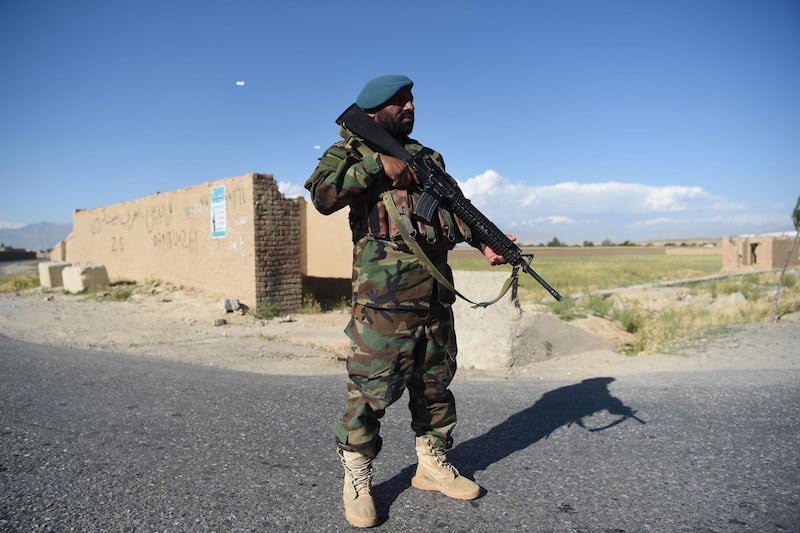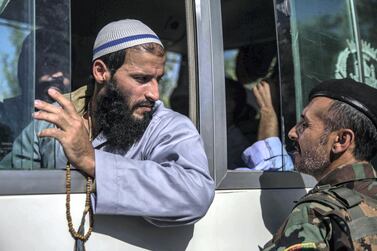Fourteen members of the Afghan security forces were killed in two separate attacks on Thursday in the first deadly assaults officials have blamed on the Taliban since the end of a three-day ceasefire.
They came as the US military said their withdrawal is considerably ahead of schedule.
A checkpoint in Parwan, north of the capital, was attacked by the miltants, said Waheeda Shahkar, spokeswoman to the provincial governor.
"The Taliban have also suffered casualties," Mrs Shahkar added.
District police chief Hussain Shah said Taliban fighters set fire to the checkpoint, killing five security force personnel. Two more were shot dead.
The Taliban have not commented.
In the western city of Farah, Taliban gunmen mounted an attack on a police post, killing seven policemen, said provincial police spokesman Mohibullah Mohib.
"Eight Taliban fighters were also killed in the clash that lasted for half-an-hour," he said, adding four policemen survived the attack.
It is the first attacks that Afghan officials have blamed on the Taliban since the ceasefire – held over the Eid Al Fitr festival – ended on Tuesday night.
According to Afghanistan's Independent Human Rights Commission, civilian casualties fell by 80 per cent during the temporary truce.
A drop in violence has largely held since it ended on Tuesday night, although Afghan security forces carried out air strikes in the south on Wednesday that killed 18 "militants," police said.
The surprise truce offer from the Taliban and the lull in fighting has raised hopes that stalled peace negotiations between the insurgents and the Afghan government could begin soon.
Afghan authorities have responded to the ceasefire by releasing some 1,000 insurgent prisoners this week, and plan to further free an equal number of inmates in the coming days.
The Taliban have also said they plan to free a group of government prisoners.
The exchange is part of a US-Taliban deal signed in February, which excluded the Afghan government, that stipulates Kabul would release up to 5,000 Taliban prisoners and the militants would free about 1,000 national security personnel.
Kabul had already freed about 1,000 Taliban inmates before the ceasefire, while the insurgents had released about 300 government captives.
Under a deal, the Pentagon was to bring US troop levels down from about 12,000 to 8,600 by mid-July, before withdrawing all forces by May 2021.
But a senior US defence official said the troop number was already at approximately 8,500, as commanders accelerate the withdrawal over fears of the coronavirus.
"The drawdown was accelerated due to CovidD-19 precautions," the official told AFP, noting that the departure of anyone with health concerns or over a certain age was being prioritised.
US President Donald Trump told reporters on Tuesday the US force level was "down to 7,000-some-odd soldiers right now".
The next day he returned to a frequent complaint that America should not be acting as a "police force" in Afghanistan.






